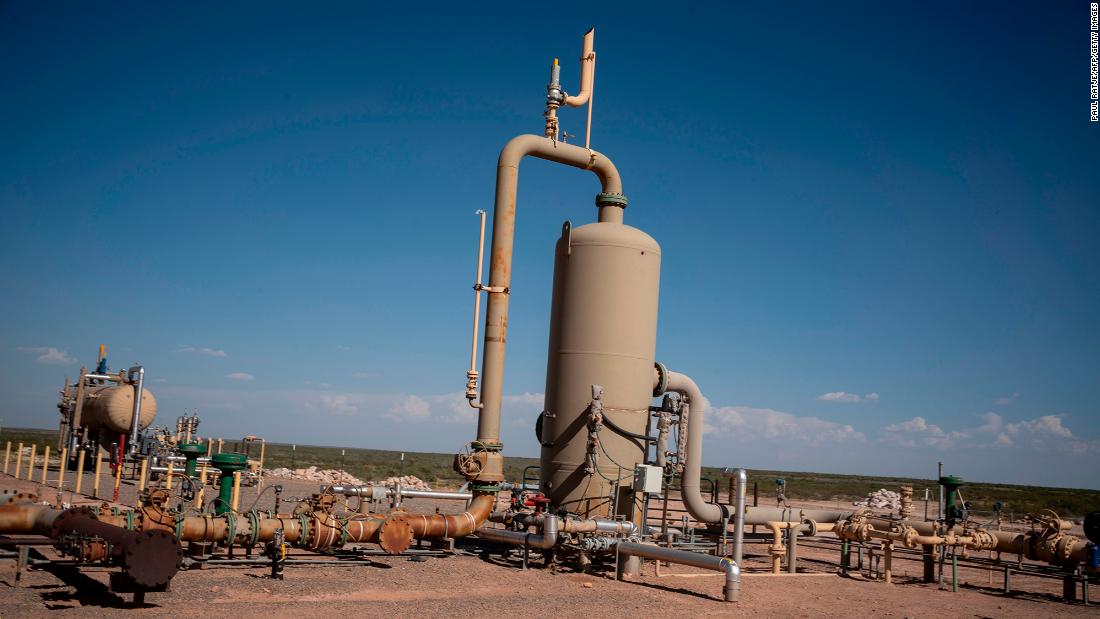Last week, the Biden government imposed a 60-day suspension of new oil and gas lease and drilling licenses on federal land, unless Interior Department leaders approved them.
However, this is a far cry from the most dramatic measure that climate activists are calling for (and which the oil industry fears): a complete federal ban on hydraulic fracturing.
Instead, Biden’s moratorium on oil and gas leases applies only to federal lands, which account for less than a quarter of total U.S. oil production and much less for natural gas. And the freeze does not affect existing leases.
In other words, ExxonMobil and Chevron may continue to fail.
“We don’t believe Biden has the authority to ban hydraulic fracturing and, if he did, he wouldn’t go that far,” said Bob McNally, founder and president of consultancy Rapidan Energy. “Biden remains a centrist with strong ties to unions, who would oppose such a move.”
In fact, a total ban on fracking would eliminate tens of thousands of jobs in Pennsylvania, Ohio and Texas – three key states for the balance of power in Washington.
Little threat to oil supply, at least for now
“He’s not kidding when it comes to imposing new restrictions on the United States’ oil sector,” said McNally, a former employee of the George W. Bush administration’s Department of Energy.
Energy analysts rejected the risk that these measures would cause a sudden spike in oil prices, which have recovered dramatically from their pandemic casualties. That’s because the world is still swimming in excess oil and many drilling companies have stockpiled licenses and leases in case Trump lost the election.
“In the short term, the market remains very well supplied,” said Ryan Fitzmaurice, energy strategist at Rabobank. “In terms of immediate impacts, it is more symbolic than a real threat to the oil supply.”
In the long run, less domestic production means that the United States may have to buy more oil from the Middle East and other countries.
“The highlight of US oil production is probably in the rear view mirror,” said Fitzmaurice.
Rapidan Energy projects that the United States will produce about 1 million fewer barrels per day in 2023 than if Trump had won a second term.
The oil industry is preparing for a fight
The biggest impact of the Biden lease freeze will be felt by New Mexico, where oil companies rushed to drill wells on federal land in the low-cost Permian Basin. The state is on track to become America’s second largest oil producing state this year, after Texas, according to Rystad Energy.
The oil industry is promising a fierce response to Biden’s lease moratorium.
“We will do everything we can to combat this executive order,” Mike Sommers, CEO of the American Petroleum Institute, told CNN Business on Tuesday. “We will seek all actions at our disposal to withdraw, including legal options, if appropriate.”
Sommers said he feared the Biden government would hamper oil development by slowing the issuance of licenses on federal land. He admitted, however, that fracking on private land is not affected by Biden’s order and nothing prevents oil companies from putting wells already drilled into production through fracking.
“We are concerned with what this will bring next,” said Sommers. “We are raising the alarm.”
‘They are keeping their promises’
While the oil industry is concerned, climate activists are celebrating – and calling for more.
Wenonah Hauter, executive director of the environmental group Food & Water Watch, said in a statement that the Biden freeze on federal land is “good news, but only if it is followed by a strong plan to permanently ban all extraction of dirty energy in public land. “
Tom Steyer, the billionaire who ran for the 2020 Democratic presidential nomination, gave the Biden government an “A” for his initial actions to tackle climate change.
“They are keeping their promises,” Steyer told CNN Business. “We have a global crisis. There is a global response. The United States can lead that response or we can follow it.”
Biden faces the challenge of responding to the climate crisis without eliminating jobs and hampering the recovery of the economy in general.
Republicans warned that Biden’s Paris Agreement and Keystone XL decisions would eliminate thousands of jobs in the United States.
“Time is running out on other jobs that will be lost in this industry as a result of these actions,” said Sommers, API CEO.
Steyer, the billionaire climate activist, said Biden will not lose sight of the impact on workers in the fossil fuel communities.
“The question of how to care for specific workers in a specific location is absolutely at the heart and soul of Joe Biden,” he said. “This is what most essentially moves you.”
